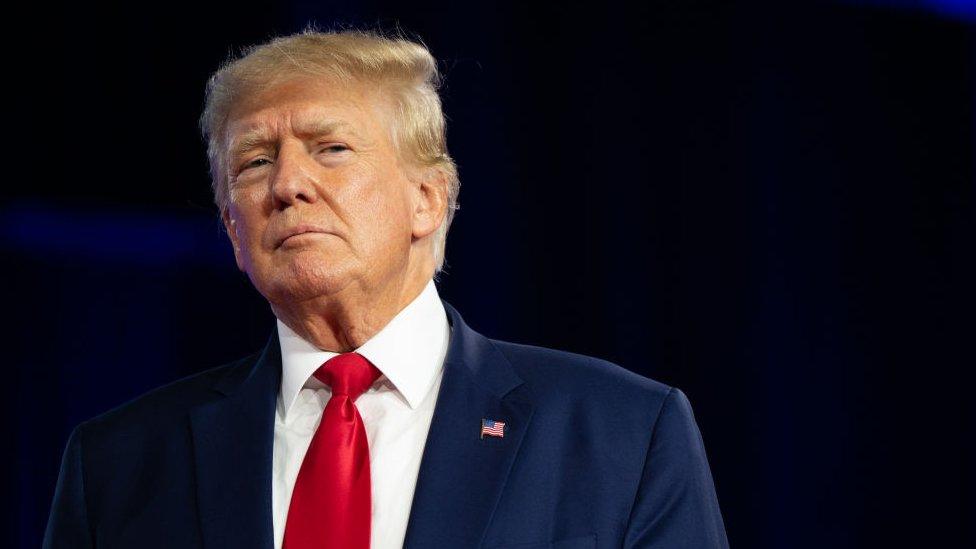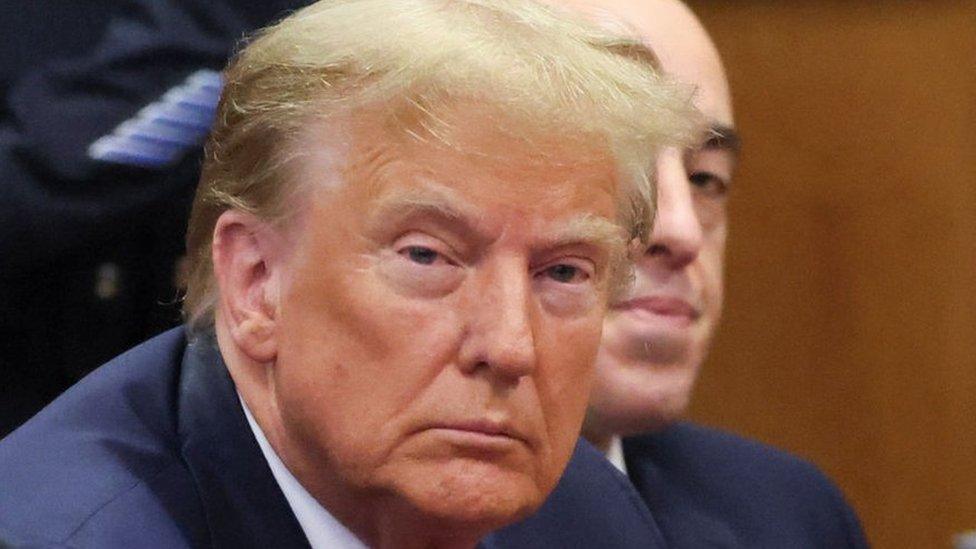Donald Trump's hush money trial delayed until at least April
- Published

The first criminal trial against Donald Trump will be delayed until at least mid-April, a judge has decided.
Mr Trump's lawyers and the Manhattan district attorney both sought more time following the release of a new batch of documents in the hush-money case.
The decision to move the trial from 25 March could push back the timeline for Mr Trump's other criminal cases.
He has sought to delay as many of his trials as possible while he runs again for the White House.
The former president faces 34 felony counts of falsifying business records, related to an alleged scheme to conceal hush-money payments to adult film star Stormy Daniels ahead of the 2016 election.
He has denied the allegations, and claimed the case is politically motivated.
It would have been the first criminal trial of a former president in the US. Until Friday, it was the only one of Mr Trump's four criminal cases to have set an official trial start date.
A last-minute release of tens of thousands of pages of documents from federal prosecutors, who had also conducted an investigation into the payments in 2018, prompted both parties to seek a last minute reprieve.
The former president's team requested a 90-day delay, saying they required more time to review the documents. Manhattan District Attorney Alan Bragg agreed to a 30-day delay, which Justice Juan Merchan ultimately agreed to.
Mr Trump's lawyers have argued that federal prosecutors did not properly turn over the evidence.
In his decision, released on Friday, Justice Merchan wrote that there are "significant questions of fact which this court must resolve". He set a 25 March hearing to discuss the discovery process, the circumstances surrounding the release of the new documents, and to potentially set a new trial date.
Mr Bragg's office declined to comment on the delay.
Mr Trump and his attorneys "will continue to find to end this hoax", his campaign spokesman Steven Cheung said in a statement.
It was a busy day of developments in Mr Trump's multiple legal battles.
In Georgia, a judge overseeing the state election interference case against Mr Trump and others allowed the prosecutor, Fulton County District Attorney Fani Willis, to remain on the case after Mr Trump's co-defendants alleged a conflict of interest arising from an affair with another prosecutor, Nathan Wade.
But Judge Scott McAfee also wrote that Ms Willis had conducted a "tremendous lapse in judgement" and Mr Wade resigned from the case.
- Published15 February 2024
